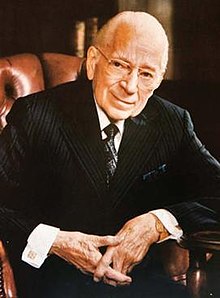Related to the so-called question of evil is the question, Is God the author of sin? Did He create sin? Is sin under His control?
Let me first address the Arminian answer to this question: sin is the result of man's free will, with the permission of God. This, the Arminian believes, relieves God of any responsibility for sin, as is supposedly required by James 1:13. However, I would suggest that the Arminian solution falls short of the weight that Arminians put on it. If I had a teenage son who told me that he intended to kill his schoolmates (as in the Columbine massacre), and I did not stop him, would I be considered free of guilt, because I merely permitted my son's wicked actions? Of course not! Both morally and legally, I would be culpable for not acting to prevent his actions. This is comparable to the Arminian attitude toward God's permission of sin. If God knew that Adam (or any of his descendants) would commit an evil act, and could have prevented it - with both of which statements the Arminian would agree - then was it not reprehensible for Him not to have prevented it? Of course, it was, so that the Arminian excuse of mere permission in no way meets his own criterion for avoiding responsibility.
In contrast, the Calvinist - including myself - insists that God is always God, and all things occur, not by His mere permission, but by His active decree. That includes things that we consider evil, whether properly so or not.
Do I then make God guilty of the acts of evil which I plainly say happen according to His decree? And the answer is no, I don't. How so?
Let me first demonstrate my assertion that all things, including what men would consider evil (whether properly so or otherwise), occur only according to the purposes of God. In Zechariah 1:14-15, that Prophet quotes God, saying, "I am exceedingly jealous for Jerusalem and for Zion, and I am exceedingly angry with the nations that are at ease. For, while I was angry but a little, they furthered the disaster." The situation is the time of the end of the exile in Babylon. As is commonly known, the Babylonians were God's tool for the punishment of Judah for idolatry. However, though Babylon was the tool of God, in her own intentions she had acted in evil, and thus incurred the wrath of God.
In Gen. 50:20, Joseph, the son of Jacob, told his brothers, "As for you, you meant evil against me, but God meant it for good, to
bring it about that many people should be kept alive, as they are today." Do you recall the story? Joseph was favored by his father over his brothers, because his mother was Jacob's favorite wife. Out of jealousy, his brothers sold him into slavery, but told his father that he had been slain by beasts. After a series of adventures, Joseph became the prime minister of Egypt at a time when there was famine in Canaan. As a result, he was in a position to save his family from starvation. An act of sin on the part of the brothers was according to God's plan to save the covenant people.
In Acts 4:27-28, the Apostle Peter is preaching to the leaders of the Jews, and then prays: "Truly in this city there were gathered together against your holy
servant Jesus, whom you anointed, both Herod and Pontius Pilate, along
with the Gentiles and the peoples of Israel, to do whatever your hand and your plan had predestined to take place." He explicitly states that God had predestined - decreed before history began - that Jesus would suffer and be murdered for the salvation of His people. The greatest evil that has ever occurred in the bloody and violent history of mankind happened by the predetermined purpose of God.
So, now we come to the question at issue: is God thereby the author of sin, of evil, of the wickedness of men? No, He is not. What is sin? As Question 14 of the Westminster Shorter Catechism says, "Sin is any want of conformity unto, or transgression of, the law of
God." Sin is the repudiation of God's authority. That definition self-evidently excludes the acts of God Himself. In addition, all that God does is for His own glory (see, for example, Isaiah 43:7) and for the good of the elect (Romans 8:28-29). That means that everything He does is necessarily good. In contrast, wicked men always act to spite the glory of God and to destroy the elect. That means that everything they do, in terms of their intent, is evil, sinful, wicked. As can be seen in the verses above, the same act, as committed by men, may be sin, but, as it is decreed by God, is only good.
Tertullian, On Prayer - Some Highlights
3 days ago


